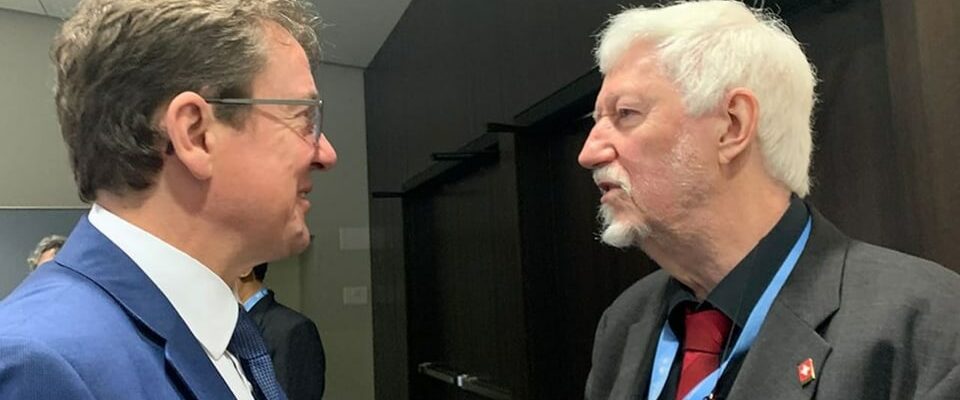Contents
It is often not only important what is said, but also what is not said. This is currently evident in the Bernese Oberland. There, experts are brooding over the report of the Intergovernmental Panel on Climate Change, which is due to appear on Monday.
It’s a struggle for every word. Because the opinions of the more than 130 country representatives sometimes differ massively as to how the state of scientific knowledge on climate change can be summarized.
10,000 should become 30 pages, a synthesis report should be written from seven reports on different topics and approved by consensus – a tough process, emphasizes ETH Professor Emeritus Andreas Fischlin: “It’s about the governments making this the latest Accept the current state of knowledge once the report is approved.»
Switzerland is committed to plain language
Fischlin has been active for the Intergovernmental Panel on Climate Change for 17 years and is currently Vice-President of the working group dealing with adaptation to climate change.
Legend:
Energy Minister Albert Rösti (here in conversation with Andreas Fischlin, right) opened the Interlaken conference on March 13 in Interlaken.
admin.ch
Fischlin gives an example that illustrates the political difficulties of this process: “There are countries like Saudi Arabia that make a living from oil exports. If the message is that we need to move away from fossil fuels as quickly as possible to minimize the damage, governments like that don’t like to hear it.”
As a result, these countries advocate vague formulations. The Swiss delegation is different. This campaigns for clear language, says Ambassador Franz Perrez.
He gives an example: “We would like the synthesis report to record the knowledge that the 1.5 degree target is still achievable – technically and because the necessary, inexpensive instruments are available. Achieving the goal is not only economically feasible, but also makes economic sense.»
No media, but NGOs on site
The public, journalists, are not allowed in the conference hall. However, non-governmental organizations may attend as observers. For example, representatives of the climate strike movement.
The countries refer to this report. That is why every single wording in the synthesis report is central.
Meret Schefer, 19, thinks the synthesis report that is about to be adopted is very important. “It is the basis of our work as a climate strike. But the countries also refer to this report – and most do not read the thousands of pages that were written in the original. That’s why every single wording is key.”
Night shifts included
While non-governmental organizations have to confine themselves to observing, governments can propose changes. The scientists at the Intergovernmental Panel on Climate Change then try to convert this into text that is scientifically correct.
And that seems to last. The negotiators will have to work night shifts and make much faster progress than before if the report is to appear on Monday as planned.
